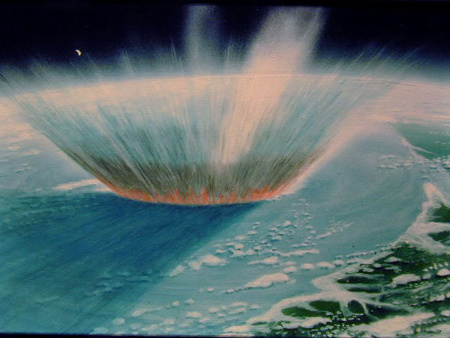
For 15 years, scientists have benefited from data gleaned by U.S. classified satellites of natural fireball events in Earth’s atmosphere – but no longer.
A recent U.S. military policy decision now explicitly states that observations by hush-hush government spacecraft of incoming bolides and fireballs are classified secret and are not to be released, SPACE.com has learned. The satellites’ main objectives include detecting nuclear bomb tests, and their characterizations of asteroids and lesser meteoroids as they crash through the atmosphere has been a byproduct data bonanza for scientists.
The upshot: Space rocks that explode in the atmosphere are now classified.
“It’s baffling to us why this would suddenly change,” said one scientist familiar with the work. “It’s unfortunate because there was this great synergy…a very good cooperative arrangement. Systems were put into dual-use mode where a lot of science was getting done that couldn’t be done any other way. It’s a regrettable change in policy.” Scientists say not only will research into the threat from space be hampered, but public understanding of sometimes dramatic sky explosions will be diminished, perhaps leading to hype and fear of the unknown. Most “shooting stars” are caused by natural space debris no larger than peas. But routinely, rocks as big as basketballs and even small cars crash into the atmosphere. Most vaporize or explode on the way in, but some reach the surface or explode above the surface. Understandably, scientists want to know about these events so they can better predict the risk here on Earth.
Yet because the world is two-thirds ocean, most incoming objects aren’t visible to observers on the ground. Many other incoming space rocks go unnoticed because daylight drowns them out.
Over the last decade or so, hundreds of these events have been spotted by the classified satellites. Priceless observational information derived from the spacecraft were made quickly available, giving researchers such insights as time, a location, height above the surface, as well as light-curves to help pin down the amount of energy churned out from the fireballs. But all that ended within the last few months, leaving scientists blind-sided and miffed by the shift in policy. The hope is that the policy decision will be revisited and overturned. “These data have been available to the scientific community for the past decade,” he said. “It is unfortunate this information is shut off just when it is becoming more valuable to the community interested in characterizing near Earth asteroids and protecting our planet from asteroid impacts.”
The newly issued policy edict by the U.S. military of reporting fireball observations from satellites also caught the attention of Clark Chapman, a planetary scientist and asteroid impact expert at Southwest Research Institute in Boulder, Colorado.
“I think that this information is very important to make public,” Chapman told SPACE.com.
Just another bizarre incident as our government becomes increasingly more “transparent”.















#19 – faxon, your an unamerican traitor, and should just go back to whatever commie loving country that spawned you.
America, love it or leave it.
I don’t know what the answer is, but I love all of the theories. Keep them coming